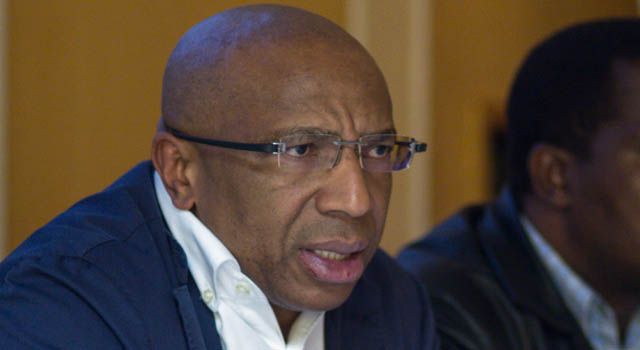 Sipho Maseko is a really nice guy — which makes me want to pity him over the challenge he’s taken on at Telkom. Some would say accepting the group CEO position at South Africa’s biggest fixed-line operator is like grabbing a tiger by its tail. Sooner rather than later, you get eaten.
Sipho Maseko is a really nice guy — which makes me want to pity him over the challenge he’s taken on at Telkom. Some would say accepting the group CEO position at South Africa’s biggest fixed-line operator is like grabbing a tiger by its tail. Sooner rather than later, you get eaten.
There’s no doubt Maseko has a job and a half on his hands. Telkom continues to lose fixed-line subscribers at a frightening rate — down to just 3,8-million at the end of March — as consumers switch to mobile alternatives. Its expansionary (mis)adventures into Africa have proved disastrous. Its mobile arm is costing it billions.
Yet I’m starting to think that Maseko — more so than any of his recent predecessors, and led (make no mistake) by Telkom’s strongest-ever board of directors — may have figured out how to tie a leash around the tiger’s neck.
Investors like what they see. Since early May, when the share price bottomed out below R12, the counter has more than doubled on expectations that Maseko has what it takes to tame the Telkom beast.
This is not to say it’s now all sunshine and roses at Telkom Towers in Pretoria. Maseko needs to make some big decisions soon, not least about what to do regarding a mobile business that is costing it billions of rand a year. In the 2013 financial year, Telkom Mobile reported a loss before interest, tax, depreciation and amortisation of R1,7bn. As a late entrant in a mobile market dominated by two operators, it was always going to struggle to carve a niche.
Talk in the industry is that Telkom is close to a deal with another operator that could solve its mobile headache. The most obvious candidate is MTN (not Cell C), but Telkom could be talking to an international partner. France’s Orange is keen on South Africa. India’s Airtel is also a possibility. Some sort of tower or infrastructure sale and leaseback arrangement would seem to be the most logical approach.
There are plenty of other aspects of Telkom’s business, other than mobile, that need fixing, of course. The operator needs to be stronger in converged IT services.
It tried to buy JSE-listed Business Connexion seven years ago for R2,4bn but that deal was blocked by the Competition Commission. The market has changed dramatically since then, but Telkom still needs a stronger presence in IT. One wonders if it would be allowed to have another go at a blockbuster deal.
Customer service is another area that needs attention. The interim results in November will reveal whether Telkom has made any progress in arresting the decline in fixed lines in service — now at their lowest point since the mid-1990s — and doing something about the sharp slowdown in the growth in fixed broadband lines, which grew by a pedestrian 5,2% in the 12 months to March 2013.
Broadband should be one of Telkom’s growth engines, so that figure should be well into the double digits. Improving customer service, coupled with Telkom’s multibillion-rand investment in improving the quality of the broadband access network — including offering higher speeds to residential and business customers — are interventions that should help lift that number.

The irony is that, despite the slowdown in growth in the 2013 financial year, fixed-line broadband, if it’s priced and marketed correctly, offers a compelling alternative to mobile broadband. The latter is unreliable — how many times do you get GPRS or Edge where there’s supposed to be a good 3G signal? Fixed broadband is generally more stable, offers more consistent throughput and, for most customers, their use is uncapped, meaning no bill shock.
Fixed services also complement mobile. As consumers spend more on data, having an uncapped fixed broadband connection at home, connected to Wi-Fi, means all of a household’s computers, tablets and smartphones can have their data routed over the fixed line rather than over expensive and unreliable mobile links. Telkom has not done enough to play this fact to its advantage.
As it rolls out faster broadband lines, it also needs to offer value-added services. It’s late in following the lead of its peers in Europe, North America and elsewhere in offering triple-play services — Netflix-style video-on-demand products along with voice telephony and broadband — all for a fixed monthly fee. But talk is that Telkom is finally seriously negotiating the deals that will allow it to offer video content to its broadband customers.
Telkom will be no easy beast to tame, but it seems Maseko has at least got the tiger pointed in the right direction.
- Duncan McLeod is editor of TechCentral. Follow him on Twitter
- This column was first published in the Sunday Times




